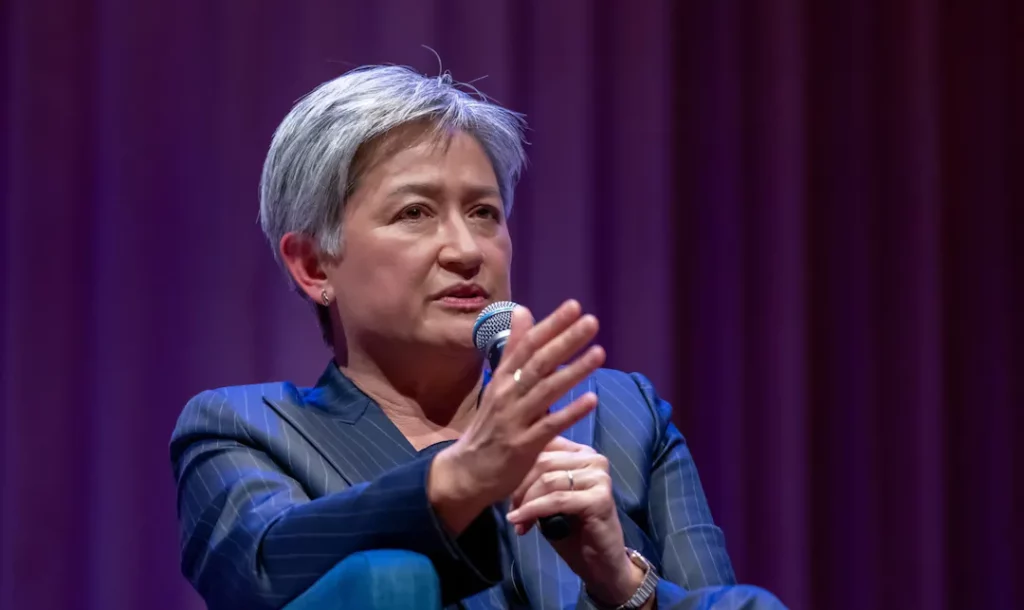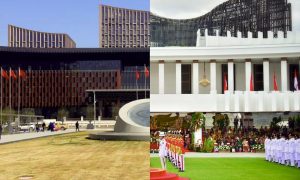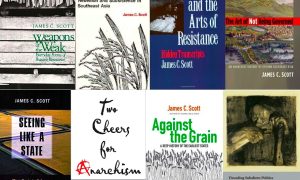In a speech delivered at the ANU’s Centre for Asian-Australian Leadership on 19 August, Foreign Minster Penny Wong announced changes to the Australian Government’s New Colombo Plan (NCP). The speech—worth watching in full—outlined the government’s reforms to the now 10-year-old Indo-Pacific student mobility scheme, including:
-
- A doubling of the number high-value NCP Scholarships awarded to support long duration study of (up to 19 months) in the Indo-Pacific from 150 per annum to (presumably) 300 per annum;
- A new emphasis on the scheme funding Indo-Pacific experiences that cultivate language learning and broader “Asia literacy” capabilities among participating Australian students; and
- Raising of the minimum duration of offshore Indo-Pacific experience under the NCP’s Mobility Program to four weeks (previously two weeks).
The motivations behind these reforms—the renewed emphasis on language learning, a desire to see more Australian students up in the Indo-Pacific for longer duration experiences, and a rebalancing of the NCP away from the two-week study tours that have characterised the first 10 years of the scheme, are good and worthy goals. But it remains to be seen if the changes announced last week will actually deliver on these ambitions.
The NCP has achieved an extraordinary amount in a relatively short span of time. In its first six years between 2014 and 2019, the NCP increased the number of Australian domestic undergraduates studying in the Indo-Pacific annually by 83%—from 8,437 students in 2014 to 15,440 students in 2019.
It has nearly doubled the number of Australian undergraduates studying in Indonesia and India annually, and nearly tripled the numbers studying in Vietnam and Malaysia.
This achievement has been driven overwhelmingly by expansion of Australian undergraduate participation in short format learning abroad experiences of four weeks or less in duration. In 2019, the year before the pandemic, a record 15,440 domestic undergraduate students undertook learning abroad experiences in the Indo-Pacific. Eleven thousand (or 73%) of these experiences were of four weeks or less in duration. Only 11% (or about 1,800) of these experiences were students studying for a semester or longer in the Indo-Pacific.
According to the guidelines for the NCP’s 2025 funding round, the scheme has three objectives:
-
- [an] increased number and diversity of Australian university graduates with Indo-Pacific capability and Asia literacy;
- deeper people-to-people and institutional relationships between Australia and the Indo-Pacific; and
- students and alumni connected with leaders in government, business and civil society in the Indo-Pacific.
Over the NCP’s first decade, these objectives have, in practice, often been in tension with one another. The tension originates in the NCP’s design and dual nature as both an education program and an instrument of Australian foreign policy.
Australian universities have spent most of the first decade of the NCP trying to convince the Department of Foreign Affairs and Trade (DFAT) of the educational outcomes and access, equity and inclusion benefits delivered by short duration learning abroad experiences. Under its previous settings the NCP has inarguably delivered on the “diversity” aspect of the scheme’s first objective. There are thousands upon thousands of Australian students who have enjoyed two-week introductory experiences of the Indo-Pacific under the NCP Mobility Program since 2014. These are students who now have passports, who have experienced international travel—many for the first time—who otherwise would not have.
However, these outcomes have, arguably, been achieved at the expense of the NCP’s other objectives—specifically the depth of “Indo-Pacific capability and Asia literacy” attained by NCP alumni, and the strength and durability of people-to-people relationships arising from these short visits to the Indo-Pacific by Australian students.
Foreign policy imperatives strike back
These shortcomings have been noticed by some in Australian foreign policy circles. The Lowy Institute’s Susannah Patton wrote in November 2022 that:
The impact of the NCP in improving Australia’s relationships with Southeast Asia is almost certainly low. The overwhelming majority of students receiving funding under the scheme…are recipients of “mobility grants”, which fund only short-term placements or travel…Qualitative academic research on the experiences of students travelling to Indonesia for short-term placements indicates that while short-term study tours may be “thought provoking”, they are unlikely to forge enduring connections to the country.
“The government should…reshape the New Colombo Plan to focus more on long-term study opportunities to ensure it is meeting its original goal of strengthening Australia’s relationships with countries in the broader Indo-Pacific.”
While prioritisation of longer duration experiences in the Indo-Pacific has been a feature of DFAT’s guidelines to universities since 2014, the raising of the minimum duration for NCP-funded mobility experiences under the 2025 guidelines is the Department’s most muscular pressing of this particular point yet.
Where to from here?
Australian universities are not yet very good at getting domestic undergraduates up to the Indo-Pacific for longer duration study—not, at least, at the scale or in the numbers desired by DFAT. The reasons for this are layered and complex. There are both student demand-side and university supply-side barriers. In short, the opportunity costs of heading up to the Indo-Pacific for semester or longer are high for most Australian students. This constrains the demand for such experiences—approximately 1,800 students nationally in 2019. Averaged across Australia’s 42 universities this equates to just 40 students per institution heading up to the Indo-Pacific for a semester or longer each year.
How Indonesian studies’ “brand needy” lets Australian students down
There is a strong case for supporting the study of Indonesian history and cultures in Australian universities.
Efforts to overcome the supply-side barriers have been—and remain—particularly neglected. Existing NCP settings provide little to no meaningful institutional funding for universities, at least not of the sort or quantum required to make the universities want to serve DFAT’s aim of longer duration Indo-Pacific study by domestic students.
Consequently, the NCP has been wholly unsuccessful in motivating the kind of structural change required within the Australian higher education system that might see greater numbers of domestic students studying for a semester or longer in the region. The required structural change includes, most importantly, new courses and degree programs with clear, curriculum embedded pathways to a semester or longer in the Indo-Pacific.
DFAT’s approach to achieving the NCP’s objectives can be illuminatingly contrasted with recent interventions into Australian higher education by the Commonwealth Departments of Health and Defence. Rather than offer grants and scholarships to students, these departments have provided funding directly to Australian universities to set up and deliver courses that serve their particular departmental objectives.
Nothing in the latest reforms announced by the foreign minister is likely fix the NCP’s supply-side constraints or make Australian universities want to send domestic students up to the Indo-Pacific for a semester or longer in numbers above the prevailing modest level.
Conclusion: A slightly undercooked experiment for 2025
In taking two-week and three-week experiences off the table from 2025, the foreign minister has thrown down the gauntlet to Australian universities, inviting them to both build upon and level-up from the comparatively low-hanging fruit of the two-week study tours that have characterised the NCP’s first decade.
Learning abroad staff working at Australian universities are typically creative, resourceful and mission-driven people. They will likely do their best to adapt to the NCP’s new settings and extend the duration of their students’ sojourning in the Indo-Pacific beyond the new four-week minimum. It is unfortunate, though, that the Australian government has not yet buttressed the enthusiasm of these learning abroad staff with a revenue signal to vice-chancellors and faculty deans of a kind and quantum that might make university leadership prioritise and centre long duration learning abroad to the Indo-Pacific within university course and degree structures.
Declaration of Interest/Disclaimer: ACICIS has received over $19 million since 2014 in Australian Government funding through the New Colombo Plan to support over 4,000 Australian undergraduate students’ participation in the consortium’s short format and semester programs in Indonesia.
 Facebook
Facebook  Twitter
Twitter  Soundcloud
Soundcloud  Youtube
Youtube  Rss
Rss 









